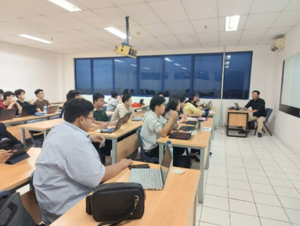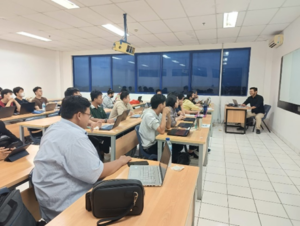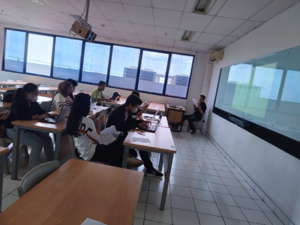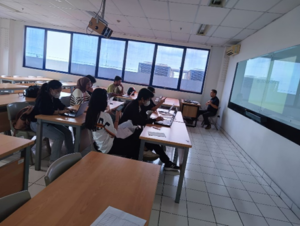PRESS RELEASE OF SMART PLS & SPSS DATA PROCESSING APPLICATION TRAINING FOR THESIS STUDENTS IN THE EVEN TERM OF 2023/2024
On Thursday, March 7, 2024, and Friday, March 8, 2024, the Management Study Program of Universitas Bunda Mulia once again held the “Data Processing Application Training” for SMART-PLS and SPSS applications.


This activity was organized to educate and train students who are currently working on their theses this semester, enabling them to process research data using appropriate applications and produce high-quality research. On Thursday, March 7, 2024, the SMART-PLS4 training was conducted by Mr. Andreas Wijaya, S.E., M.M., starting promptly at 5:30 PM WIB with a total of 24 students in attendance. The session began with an explanation of the basic theory of data processing and the concepts of the SMART-PLS4 application. Mr. Andreas Wijaya presented the material interactively with the students before delving into the application.
During the session on application introduction and research data analysis, a prepared case study was used, followed by step-by-step data processing instructions starting from drawing the research model, validity-reliability tests, understanding the inner and outer models, testing mediation and moderation, and concluding with a Q&A session about the application.


On Friday, March 8, 2024, the SPSS training was conducted at 1:30 PM WIB by Dr. Fahrul Riza, S.E., M.S.M., attended by 10 students. The session began with a straightforward explanation of the basic theories for data processing and the indicators to be assessed when using the SPSS application, including how to input data and an introduction to the variables present in a research study. Subsequently, the session transitioned into step-by-step application usage, ensuring that students understood and were trained in data processing using SPSS, supporting their thesis research analysis. The process started with data input through a case study provided by Dr. Fahrul Riza, the determination of research hypotheses, and methods for interpreting the resulting data.
Both training sessions were conducted in a two-way format, allowing students and trainers to engage in discussions and Q&A. Overall, the data processing application training proceeded smoothly, with active student participation throughout the sessions, which supported their research analysis, particularly for their ongoing thesis work.


